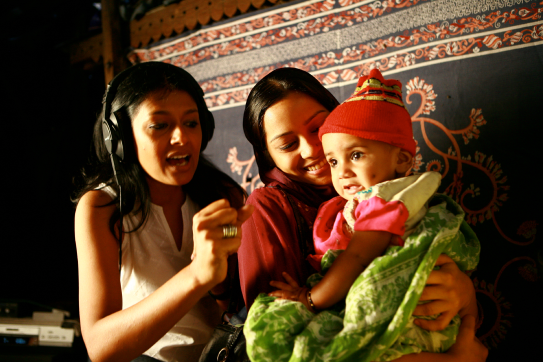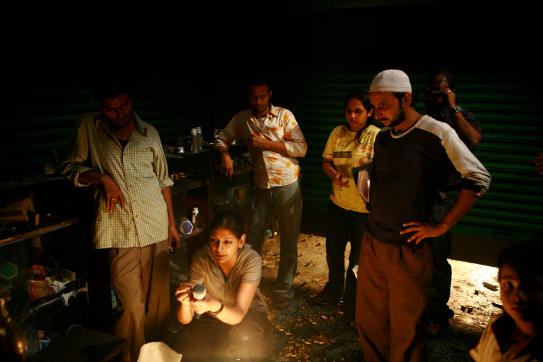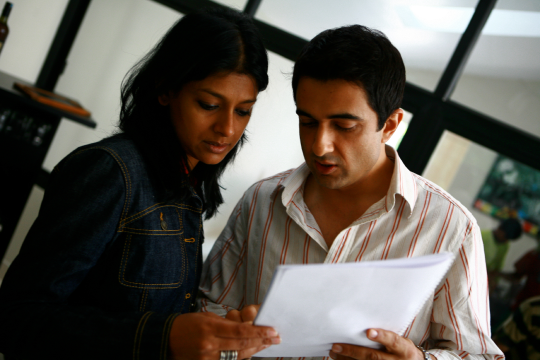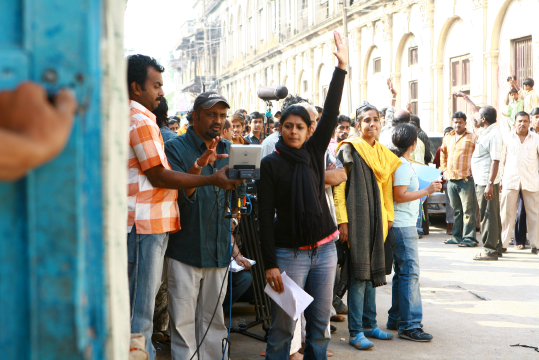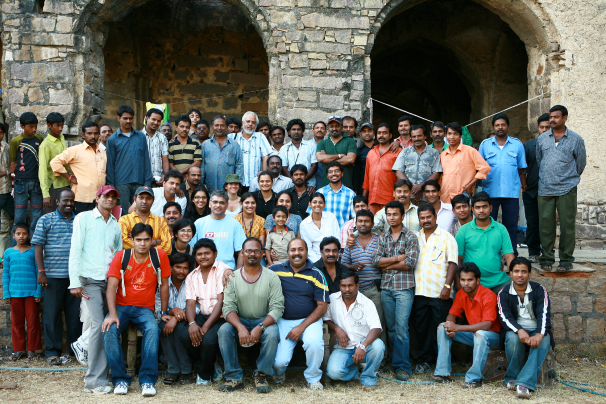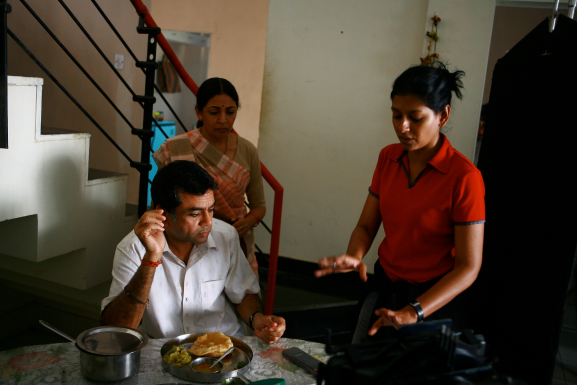‘Everything’s back to normal.’ Or is it?
- August 1, 2005
I got the following, from a dear friend who began pouring his heart as a comment to my Gujarat post that was in the line of fire! But it got to be long and so he hesitated and emailed it to me instead. I think his insights, experiences and anguish is worth sharing with all of you. I see on various other posts as well, the polarization and the passions that overflow when religion is being discussed.
Itís a little long, but do read it all. Here it goes…
Thanks to Nandita and the other bloggers who continue to have something to say about the Gujarat massacre/carnage/pogrom. Lest we forget, it wasnít a riot or riots. This was genocidal violence coordinated with the hand of the state government. It targeted Muslim businesses and neighbourhoods. Rape, arson and vivisection are part of the litany of violent acts. These events have been well documented. They are the empirical facts of history collected by many independent bodies, and they are published and available in your local bookstore (including Amdavad). The killing of the pilgrims/activists at Godhra is also to be condemned in no uncertain terms, and the perpetrators must be brought to justice.
Iím relieved that the debate goes on and people are still talking about 2002 when many others want to brush it under the carpet. Too often, people think if you forget history then it will go away and we can all move on, as if the repercussions of the past donít return to haunt a society, traumatize its people, or bite us all in the proverbial butt. Like Nandita, I find this will to forget even more worrisome when the events are so near to us in time, and individuals and communities are living with the devastating effects right now. Whether we believe in this god or that god or none at all, we have a moral obligation to remember these people and those who have perished at the hands of barbarism. It is incumbent on us wherever we live to make some contribution to preventing such barbarism in the present and future. That is why I find the idea of ëeverythingís normal nowí such a problem. Itís something Iíve heard in Ahmedabad on the several times Iíve visited the city after the killings of 2002. I can understand that itís part of a psychological mechanism that wishes the hard times were over, and that we can all now return to peace and ënormal lifeí. But peace isnít peace if you donít have justice. Normality continues to be abnormal if you donít have peace for all. I suspect that the desire for ënormalcyí after communal rioting is also a reflex mechanism in a city that has a history of some of the worst and fairly regular Hindu-Muslim violence, though 2002 was qualitatively and quantitatively different in many important respects.
People also have reflex mechanisms when faced with arguments about the communal problem. By now, Iím sure youíre trying to peg who I am (if you havenít pegged me already)óHindu, Muslim, religious or secular, high caste or low caste, Gujarati or something else, foreigner or Indian? As if that identification will then allow you to agree or disagree with whatever I have to say. Unfortunately many South Asians think they know exactly how and why and what you think about everything once they have identified your religious, caste, class, ethnic, gender identities. Now I know all these things shape us, but weíre not just passive receptacles. We do have the ability to think beyond these categories. So I find the Hindu-Muslim, religious-secular back and forth on the debate quite unproductive and really depressing. We keep repeating the same moves in the debate about India as a secular or Hindu nation, on how Muslims are like this or Hindus are like that, or that India is or isnít the greatest nation in the world, or Pakistan is or isnít the worst nation in the world. The weakness of some secular arguments is to suggest that in being Indian people need to keep religion out of public life, keep it in the private sphere. Shekhar in the movie Bombay says, ëIím not Hindu or Muslim, Iím Indianí. I think this is a wrong equation. Why canít he or another citizen say ëIím Muslim and Iím Indianí? Or ëIím Hindu and Indianí. ëAnd I respect the fact that Hindu or Muslim or Sikh or Parsi or Christian or whatever is as Indian as I amí. Thatís an important difference. Secular liberals cannot just wish religion away. Itís important to many individuals and communities and has to be factored into the way we imagine the social fabric. You canít stop people believing and practicing, even if you think religion is the opiate of the masses.
Religious and secular individuals should be able to look outside of themselves at the world without being bound to some notion of ëusí and ëthemí all the time. Not EVERYTHING that defines me as a ëmale middle-class English-speaking weak Hindi/Urdu conversational heterosexual Karachi-born Briton New Zealander Church of England school educated raised as Muslim but now atheist some of my best friends are Catholic and Jewish, married to a Vaishnav Guajarati tri-lingual woman from Ahmedabadí person shapes how I think about the world and about India. So I find it really saddening when people respond like knee jerks to the truth of the killing in 2002. I try my best to not be categorized, though itís hard in this world of passports, censuses, ID cards and departments of homeland security.
I have spent many winters in Ahmedabad (usually 4-6 weeks each time) since 1996 and I have grown to love the city and the openness and hospitality of many of its residents. I have a family there. I love the food. I would gladly sacrifice the finest fine dining experience at an Auckland restaurant for a double-chutney sandwich at Amulís in Law Garden. In my visits to Amdavad before the pogrom of 2002, I was increasingly struck by how in public conversation and in the media the minorities were being targeted on a regular basis. Nuns, priests and church buildings were attacked. The newspapers were full of cartoons of Muslims with long hooked noses, unkempt beards, skull caps and menacing expressions. These Semitic stereotypes (since some Hindus erroneously equate Indian Muslims with Arabs) reminded me of the representations of Jews in Nazi propaganda of the 1930s. When a minority that is weak in power in real everyday economic, cultural and political terms in any nation is accused of having more power than the majority, then Iím very suspicious.
While we endeavour to seek solutions to the situations in which two groups seem to be in permanent and irresolvable conflict with each otheróe.g. Israelis and Palestinians, Catholics and Protestants in Northern Ireland, Tamils and Sinhalese in Sri Lanka, Northern and Southern Sudanese, Muslims and Hindus in Indiaóthe two sides are not exactly the same. Yes, suicide bombers killing innocent Israelis in buses and pizza parlours are terrible. Yes, the Israeli Defence Force killing young Palestinians in refugee camps and occupied towns is terrible. Both sets of actors should be condemned for their actions. But at the same time, in conflict between two groups, each group does not have equal power in the society. In almost every case the odds are stacked in favour of one group against another or others. This is not to excuse the violence of any person. But what I find quite incredible are the paranoid assertions that Indian Muslims have inflated ëspecial treatmentí and powers just because theyíve been exploited as a voting bloc (sometimes willingly by their leaders) And that Muslims threaten India and Indian values by their presence.
The fact that a group of Islamist fascists attacked the United States in 2001, and that there is a network of sympathetic Islamists in many countries, should remind us, not that all Muslims are potential violent enemies, but that there is an incredibly varied multitude of religious and non-religious Muslims all over the world. All Muslims do not share the same views. Some of them donít even pray to Mecca, for Christís sake! A Muslim in Karachi or Lahore or Islamabad does not necessarily share the same beliefs and values and political hopes as another Muslim in the very same city, never mind the same ones as a Muslim in Ahmedabad or Delhi. The same goes for Hindus and Christians and Jews. This will be obvious to many, but itís a sad reflection of the times that it needs to be restated when the hype about the War on Terror (which should be renamed the War OF Terror) keeps repeating the lie that we are living through a ëclash of civilizationsí.
Iím reminded of one of my favourite writers, Walter Benjamin, a German Jew who in his attempt to flee the Nazis in Occupied France killed himself in despair after French officials refused to let him cross the border into Spain. Just before his death in 1940, he wrote that ëthe tradition of the oppressed teaches us that the ìstate of emergencyî in which we live is not the exception but the rule. We must attain a conception of history that is in keeping with this insightí.
Thanks for reading.

